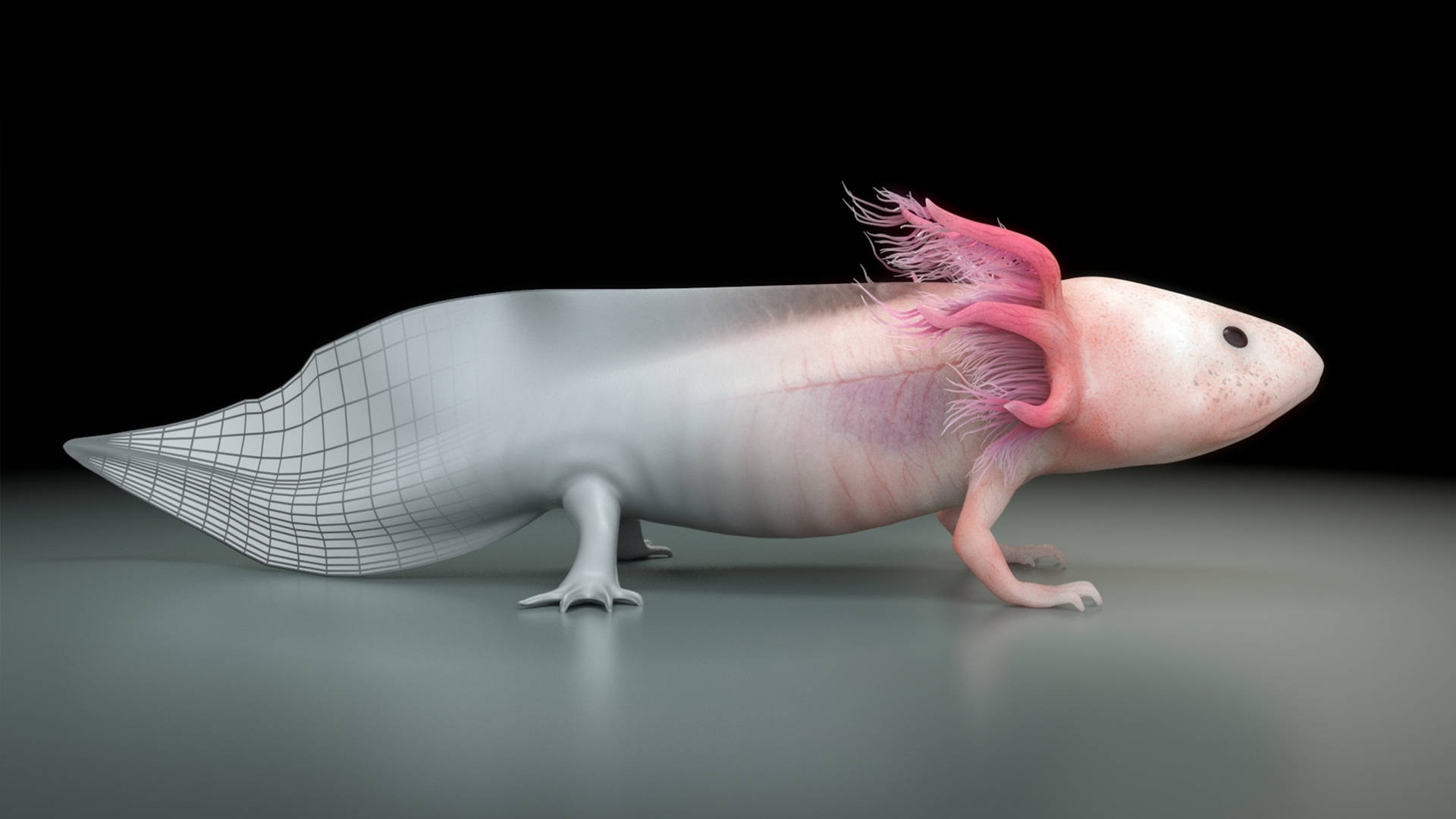Axolotls are often referred to as “Mexican walking fish,” although they are not fish at all. Instead, they are amphibians that belong to the salamander family. These remarkable creatures can grow up to 12 inches long, with a soft, elongated body, feathery external gills, and a broad head that gives them an almost smiley expression. Their skin ranges in color from wild type, which is a dark brown, to leucistic (pale pink with dark eyes), golden albino, and even axanthic, making them a visually stunning species.
One of the most remarkable features of the axolotl is its regenerative capacity. Unlike most animals, axolotls can regenerate not only their limbs but also their heart, spinal cord, and even parts of their brain. This extraordinary ability has made them a focal point of scientific research, as scientists study the mechanisms behind regeneration to uncover potential applications in medicine and tissue engineering.
In their natural habitat, axolotls are primarily aquatic, spending their entire lives in water. They possess a unique adaptation known as neoteny, which means they retain juvenile features throughout their lives, such as their gills and aquatic lifestyle. Unlike most amphibians that undergo metamorphosis to become terrestrial adults, axolotls remain in their larval form, making them truly unique among their relatives.
Axolotls are carnivorous and have a diet consisting mainly of small invertebrates, such as worms, insects, and small crustaceans. In captivity, they are often fed a diet of specialized pellets, bloodworms, and small fish. Their feeding behavior is quite interesting; they use suction to draw in their prey, often snapping at it with remarkable speed.
These amphibians have a relatively simple social structure. In the wild, axolotls are generally solitary but may occasionally be found in small groups during breeding season. Breeding typically occurs in the spring, when males exhibit courtship behaviors to attract females. After mating, females lay hundreds of eggs, which are deposited on aquatic plants. The eggs hatch into larvae, which will grow into the adult form.
Unfortunately, axolotls face significant threats in their natural habitat. Urbanization, pollution, and the introduction of invasive species have led to dramatic declines in their population. In the wild, they are classified as critically endangered, with conservation efforts underway to protect their remaining habitats and promote breeding in captivity.
In recent years, axolotls have gained popularity in the pet trade due to their unique appearance and fascinating behavior. However, potential pet owners should be aware of their specific care requirements, including the need for clean, cool water and a balanced diet. Proper care can lead to a lifespan of up to 15 years or more in captivity.
Axolotls have also become iconic in popular culture, appearing in video games, movies, and online media. Their cute and quirky appearance has made them a favorite subject for memes and merchandise, further raising awareness about their conservation status.
In the scientific community, axolotls are invaluable research subjects. Their regenerative capabilities have implications for understanding tissue regeneration and potential treatments for human injuries. Researchers study their genetic makeup and the molecular pathways involved in regeneration, hoping to unlock secrets that could one day benefit human medicine.
To summarize, the axolotl is an extraordinary amphibian that showcases nature’s wonders through its unique adaptations and remarkable regenerative abilities. With its captivating appearance and scientific significance, the axolotl continues to inspire curiosity and admiration. However, the challenges it faces in the wild highlight the urgent need for conservation efforts. By raising awareness and protecting their habitats, we can help ensure that these incredible creatures thrive for generations to come.







What do you think?
Show comments / Leave a comment